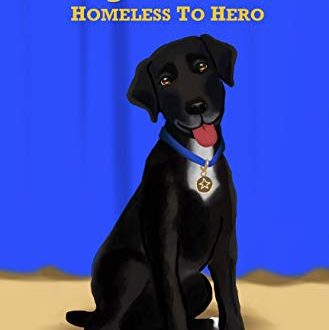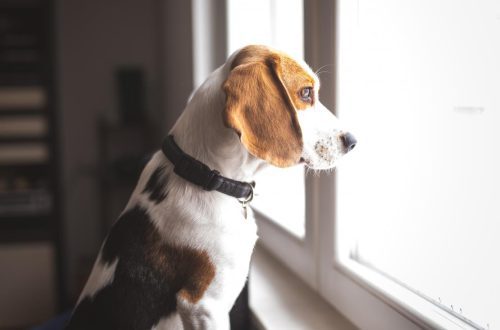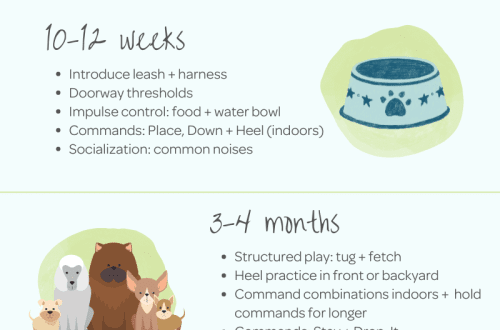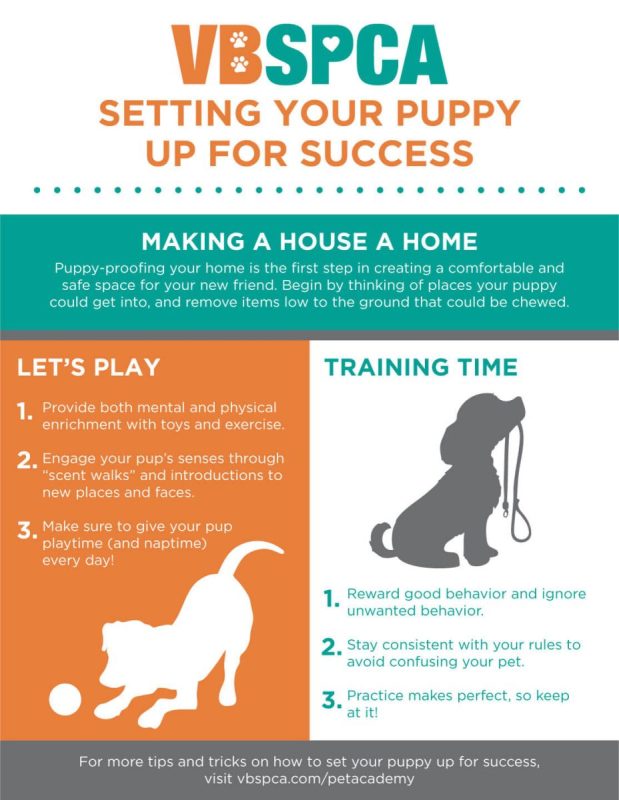
Како да дом вашег штенета учините безбедним
Once you’ve decided to get a puppy, you need to reinforce the excitement by preparing your home for it. Here are some tips to help you prepare for this important event:
Садржај
Through the eyes of your dog
Before you bring your new best friend home, make sure your home is safe for him. Fortunately for those who have ever prepared for the arrival of a baby in the house, these processes are very similar. Check your home for any dangers that a curious animal might be in for. Don’t know what to look for? First, check your home for protruding wires and electrical cords in plain sight. Puppies love to chew on everything, and, unfortunately, these wires are very tempting for them. Tape or secure things that can’t be removed, or hide small wires on a shelf that the puppy can’t reach.
Are there children in the house? Let them also participate in the exciting game “Safe Home for Puppy”. Imagine that you are a puppy and get down on all fours. Don’t skip this method: it will help you better identify which toys, objects, or even litter your puppy might accidentally (or intentionally) swallow. If there are areas in your home that can’t be tidied up, such as a playroom, keep your dog out, just close the door or put up a child barrier. Barriers can be placed at the top or bottom of stairs, especially if you have a small or toy breed dog that can get hurt if they fall.
These are not chew toys.
A dog can easily confuse things in your home with his personal toys. Get in the habit of unplugging all small electrical appliances immediately after use. For example, don’t leave your hair dryer plugged in with the cord dangling from the sink. If you pull on it, it can injure your dog, and if he starts to chew on it, he can be electrocuted. And remember, gnawed cables can wreak havoc throughout your home. Damaged wires can spark, causing a fire.
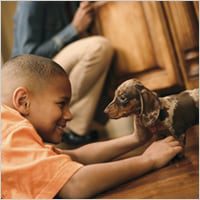
Wires aren’t the only thing your puppy will want to chew on. In general, dogs love to chew on shoes, and you probably have several pairs in the hallway or on an open shelf. Whether it’s high-heeled shoes, sandals, sneakers or boots, dogs don’t care when they’re looking for a toy or an afternoon snack. If your puppy gets to the shoes, he will ruin them very easily. And more importantly, he can swallow small parts and choke. Store shoes behind closed doors in a room or closet so your dog can’t get to them. It is best to teach her from a very early age what is a toy and what is not. This will save you from financial expenses, from the need to clean shoes, rugs, clothes, children’s toys and much more.
Dangers associated with water and fire
Even if you have cleaned everything up and taken care of the safety of your puppy, there can still be many household items around that are dangerous for him. Some areas in your home should be completely isolated from your puppy. Do you have a pool in the backyard? Surround it with a barrier so that the pet cannot jump into it. While some dogs are fairly good swimmers, left unattended puppies are at risk of drowning in the pool.
Your four-legged toddler must be kept away from all hot objects such as a fireplace, electric heater or wood-burning stove. Secure any heat source around the perimeter and let the puppy know that this area is dangerous by training him to stay away from it himself.
Cleaning products and medicines
Houseplants are great green decorations for your home, but some plants are extremely toxic to dogs. Find out which plants are poisonous and remove them from the room. Toxic, for example, according to PetMD, are mistletoe, chrysanthemum and lily. Many household chemicals and similar substances can also be very dangerous if swallowed. Keep your young pet away from volatile substances that may be in your garage, such as oil, car cleaners, rock salt and antifreeze.
Dogs can also confuse medications or vitamins with treats. Store them in a safe place, in a high cabinet where neither children nor puppies can reach them. This also applies to detergents for dishwashers and washing machines, they should also be stored in an inaccessible place: best of all in a locker under lock and key (otherwise the dog will open it!).
Keep the floor clean
Once you bring your dog home, keep an eye on what’s on the floor. Yes, you and your family crawled around the house on all fours and collected small items before bringing the puppy home. But when he settles with you, it is necessary to repeat this procedure from time to time. Clean up anything that falls on the floor while cooking: Foods like chocolate are well known to be harmful to animals. Your restless puppy can easily choke on small objects or eat something that can cause digestive problems, such as dental floss or gum. To avoid such troubles, regularly vacuum or sweep the floor.
Keep track of your things
You need to not only keep the puppy safe, but also protect your belongings from him. Returning home, no one wants to find there a chewed-up sofa, a scratched door, or a broken memento that cannot be replaced. The first step is to prevent. If you have things that you think are not normally in danger, but you don’t want them to break, put them somewhere else. Use washable duvets and bedspreads to keep your sofa stain-free. On open areas of wood furniture, you can use a pet-safe bitter spray that will ward off dogs that love to gnaw everything in the world. Large glass vases placed on the floor can temporarily take up residence on a side table or pantry until your puppy is trained enough to avoid them. And don’t forget about family heirlooms that can be soaked, chewed, or broken overnight.
Getting ready for pranks
Even with the best training and preparation, there is a chance that your four-legged family member will find trouble on his head. But be patient with him: he needs to learn the rules before he can hold you accountable for breaking them. He won’t know your old slippers aren’t chew toys until you teach him that. It may also seem to him that the kitchen trash can is a tall dog bowl filled with a huge variety of goodies. Don’t let these moments piss you off – many situations can only be dealt with by facing them. Practice training and your dog will know what to play with and what not to.
It takes very little time to keep your puppy safe, but he will be happy to live in such a safe place. As he grows in your family, keep an eye on how he learns what he is allowed to do indoors, and you will spend less effort reminding him of this. Until then, try to protect your pet from any possible dangers.



